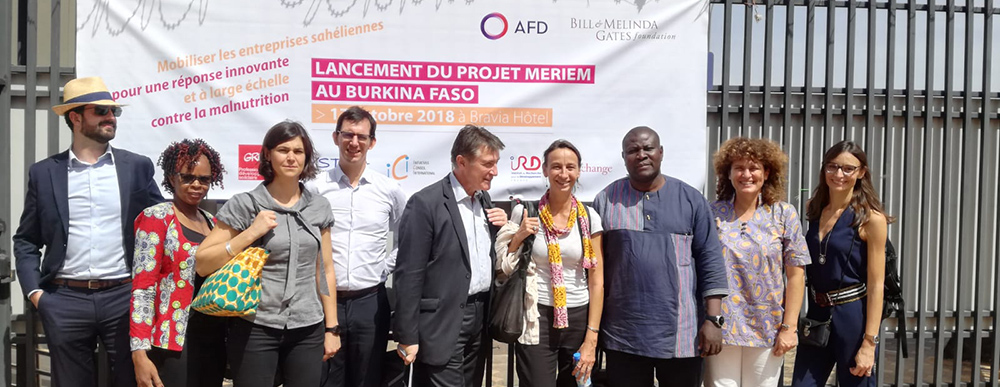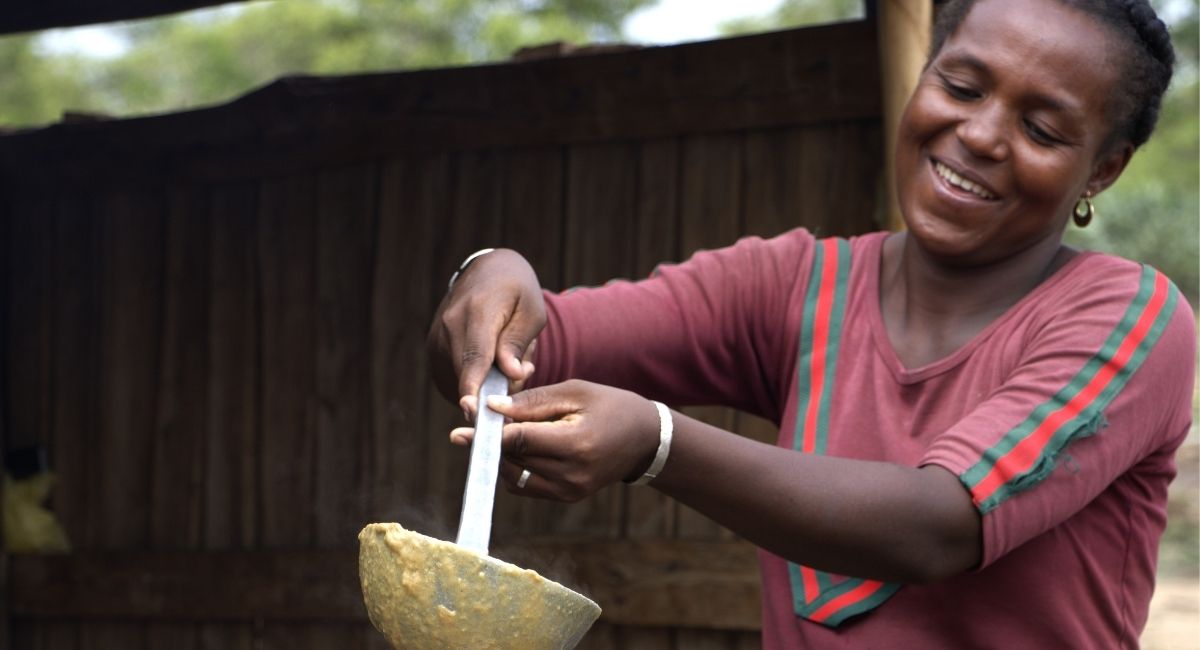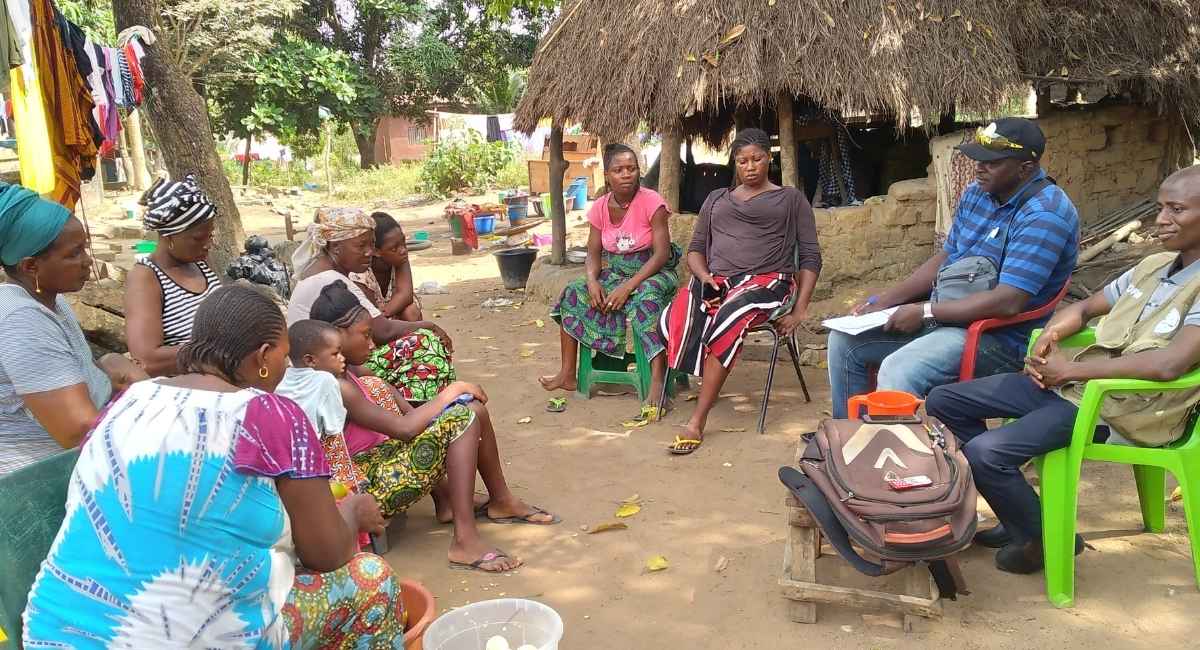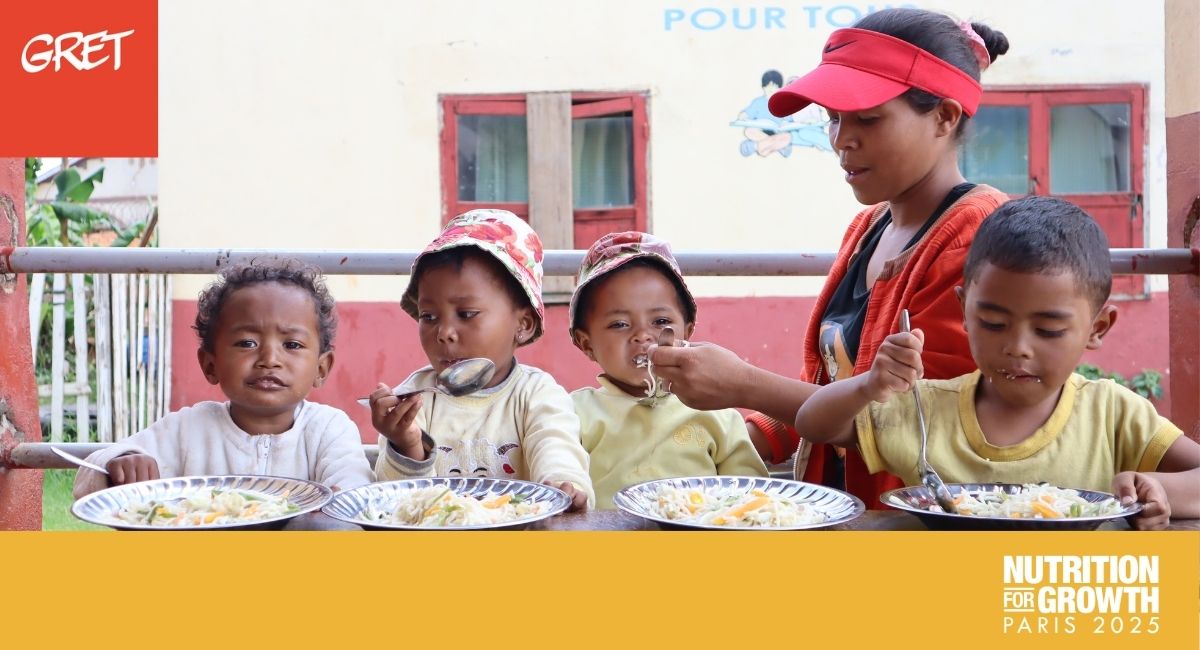On 17 October, in Ouagadougou, Burkina Faso, GRET and the Hystra consultancy firm launched a three-year project aiming to demonstrate how, and under which conditions, marketing solutions can contribute to sustainably preventing all forms of malnutrition in large cities in Burkina Faso, Mali and Niger. The Meriem project (Mobilising Sahelian businesses for innovative, large-scale responses to fight malnutrition), funded by Agence française de développement (AFD) and the Bill & Melinda Gates Foundation, is being implemented by a multi-stakeholder alliance made up of development, research and business consultancy professionals.
The first 1,000 days: a key period to prevent malnutrition, especially in urban areas
In Burkina Faso, Mali and Niger, 21 to 42 % of children under the age of five suffer from chronic malnutrition. Malnutrition has irreversible consequences when it occurs during the first 1,000 days, corresponding to the period of a child’s development, from the first day of pregnancy up to the age of two. Manufactured quality fortified foods have strong potential to contribute to preventing malnutrition among young children and their mothers during this key period, by providing nutritional value appropriate to their needs. This is particularly true in large Sahelian cities where city dwellers are used to consuming manufactured foods and where the population in precarious neighbourhoods is constantly increasing.
Yet, Sahelian businesses still have difficulty with the production and large-scale distribution of quality fortified foods, in a market they perceive as complex and unfavourable. Local supply exists, but it is insufficient to sustainably cover the needs of the population, and imported products are financially inaccessible for the majority of the population.
“We have observed that fortified foods are one effective solution to fight against malnutrition in our country, particularly in cities where manufactured foods are now a part of our eating habits”, explains Bertine Ouaro, director of nutrition at the Burkina Faso ministry of Health. “This is why we are encouraging the development in our country of a quality fortified foods offer that is produced locally and affordable for the greatest possible number of people.”
An innovative sustainable solution that is mobilising businesses
By generating enthusiasm among public and private nutrition stakeholders, and with sustainable market mechanisms, it is possible in the Sahel to extend the manufactured quality fortified foods offer, while making it affordable for the greatest possible number of people. Convinced of this, GRET is launching the Meriem pilot project (Mobilising Sahelian businesses for innovative, large-scale responses to fight malnutrition).
This project is rising to the challenge of reconciling social and economic profitability objectives on a large-scale in three countries. It wants to demonstrate how, and under which conditions, marketing solutions can contribute to sustainably preventing malnutrition. Marketing innovations will be tested and deployed with high-potential Sahelian businesses, selected for their dual interest in branching out in a growing market, while contributing to addressing a public health issue. Alongside these innovations, vital actions will be conducted to support the public sector to implement an appropriate regulatory framework (quality standards, WHO international code, etc.) and to promote a quality label making it possible to encourage businesses to become mobilised while structuring their action. This approach will be accompanied by actions to raise awareness on exclusive breastfeeding, food diversification and continuing breastfeeding until the age of two or longer, together with public health stakeholders, with a strong focus on encouraging these fundamental best feeding practices during the first 1,000 days.
A large-scale pilot project
This project, led by GRET and Hystra, brings together a pool of international experts from the NGO, research and private sector consultancy sectors – the Institute of Research and Application of development methods (Iram), Initiatives Conseil International (ICI), the French National Research Institute for sustainable development (IRD), Ogilvy Change and ThinkPlace. Over a three year period (June 2018-May 2021), it will benefit from the support of AFD and the Bill & Melinda Gates Foundation, with an overall budget of 14.2 million euros. With project management based in Ouagadougou and project teams in all three countries, this hybrid consortium will work on three main areas of activities:

1. Development of a local quality fortified foods offer
- Designing products suited to the nutritional needs of children aged 6 months to 2 years and women of childbearing age, appropriate to populations’ eating habits, in line with international standards and recommendations, and affordable for the majority of the population.
- Supporting selected Sahelian businesses with the potential to produce and distribute products on a large scale.
2. Deployment of an innovative marketing approach
- Generating interest among families for these products that are suited to the needs of children aged 6 months to 2 years and women.
- Encouraging regular widespread consumption of these products.
- Testing large-scale distribution strategies, from major distributors to local networks.
- Raising the population’s awareness on nutrition, in partnership with the State and local stakeholders.
- Promoting a quality label.
- Supporting the State and businesses to respect quality standards and the WHO international code.
3. Evaluation and capitalisation of results
- Evaluation of the impacts of the project, capitalisation on the approach and results.
- Documentation of conditions necessary for the success of this approach, identification of limits, debate on this.
- Encouraging stakeholders to adhere to the approach by distributing and fostering recognition of its benefits.
Working in urban areas, this project wants to respond to the challenge of nutritious food in cities, where few projects are conducted, despite the rapid increase of populations in precarious neighbourhoods. It aims to prevent all forms of malnutrition by mobilising businesses to ensure widespread sustainable access to quality fortified products.
The project was officially launched on 17 October in Ouagadougou for Burkina Faso, at the second meeting of the project steering committee. The launch ceremony was attended by representatives from AFD and the Bill & Melinda Gates Foundation, by Philippe Chedanne, AFD Greater Sahel regional delegate, Ella Compaore, technical secretary in charge of food and nutrition with the ministry of Health, Nana Thiombiano, a representative from the Directorate of Nutrition, Salamata Ouedraogo, a representative from the General directorate for the promotion of businesses at the ministry of Trade, Industry and Crafts, Pierre Jacquemot, chairperson of GRET, and representatives from NGOs, the United Nations, businesses, the banking sector and the national public health laboratory.
The launch of activities in Burkina Faso will be followed in the coming months by the launch of activities in Mali and Niger, the project’s two other countries of operation.





